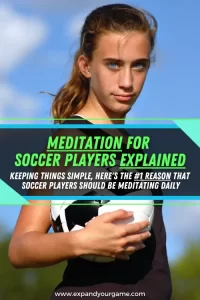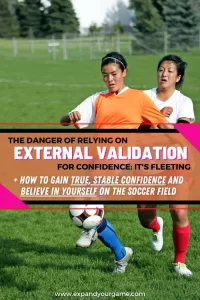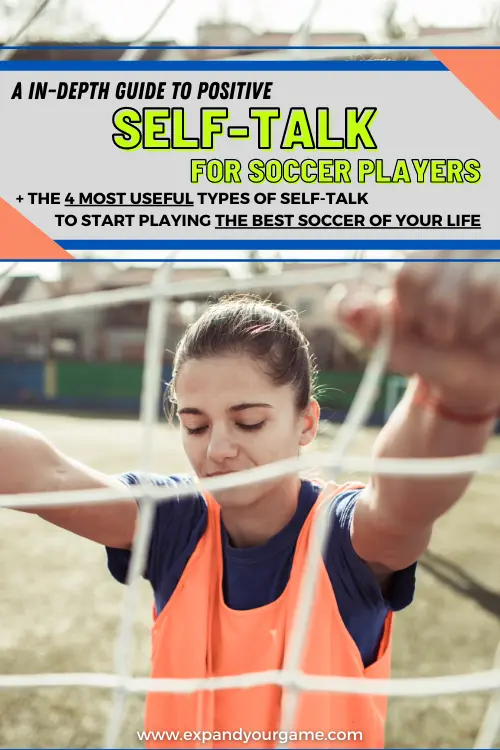
This Post Contains:
Being your own best coach
To play your best, you need to be able to coach yourself into a calm, composed, focused state of mind – regardless of what is going on around you, regardless of the pressure, nerves or heavy expectations. Using positive self talk is a great way to handle stress, free up your mind and stay present so that you can maximize your potential and be impactful on the field.
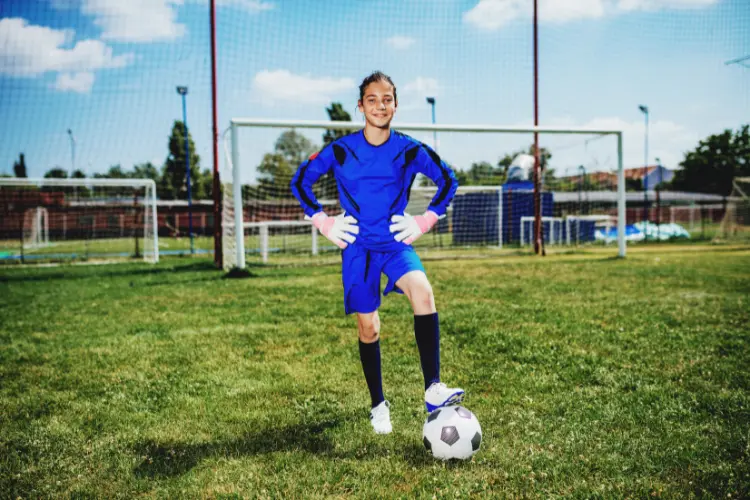
Why is self talk important
{Related read: The power of positive self talk to completely elevate your game}
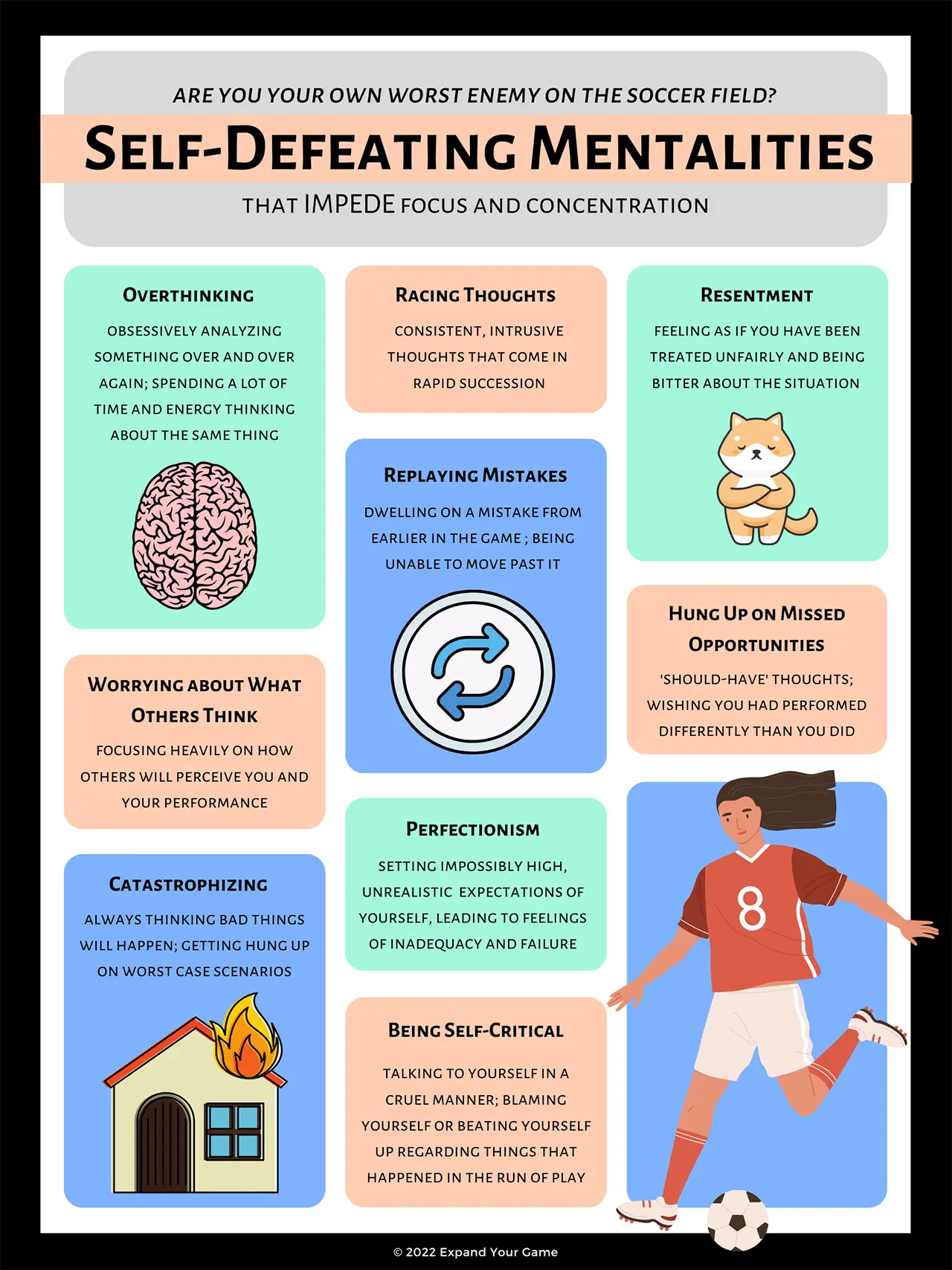
One of the most important things to understand about self talk is that in order to change your thoughts, you can’t just tell yourself to STOP thinking negative thoughts (it won’t work), but instead you have to consciously and intentionally REPLACE them with something else.
Self talk to improve (pre + post) game mentality
Self talk type 1: motivational self talk
Motivational self talk examples

Self talk type 2: self-compassion
Self-compassion examples
An example of self compassion might be something like this. You are playing center back and you are struggling to build because the opponent is applying a high amount of pressure. After the game you reflect, and instead of beating yourself up and being self critical about everything you did wrong and should have done better, you try this approach: “That was really hard, they were really applying a lot of pressure. But I understand that things like this are a part of soccer and I’m not alone in having had this experience. I did a good job being very aware though, noticing where the pressure was coming from and then trying my best to give my teammates instructions about how to move the ball so that we could keep possession.”
For more on the power of self-compassion and different ways you can use it, check out the work of Dr. Kristin Neff.
Grow your confidence through preparedness.
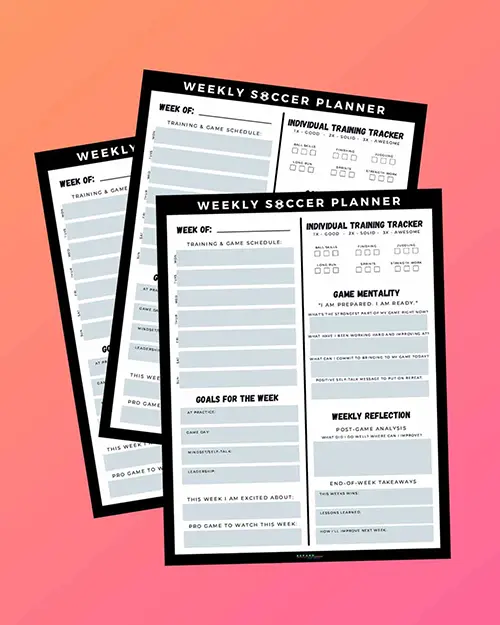
Subscribe to our email list to
Get your FREE Weekly Soccer Planner!
We respect your privacy. Unsubscribe anytime.
The most HELPFUL self talk for on the field
Self talk type 3: neutral thinking
Neutral thinking examples

Self talk type 4: instructional self talk
Instructional self talk examples
You can use instructional self talk like a mantra as well. A short phrase on repeat to center you and bring you back to the present moment as you start to get distracted by emotions, heavy expectations of perfection or missed opportunities.
These instructional self talk examples are written per position but you could do this anyway you want.
Becoming a player with good & useful self talk
and
The reason self-awareness is necessary here is because you need to understand the impact of the negative self talk, and then really want to discover how to get the heck out of it.
Positive self talk will not come naturally when you start though. You’ll have to force yourself to do it for awhile until it starts to become habit. That is why a genuine desire to change is a necessity because you are going to have to have a great deal of persistence to pursue.

If you are a player that struggles with self defeating mentalities and lack of confidence on the pitch, pushing yourself to take on this challenge and try one of these self talk examples is a really great way to jumpstart things and get invested in yourself and your growth. Because soccer is WAY MORE FUN when your’e inner critic isn’t the loudest voice in your head.
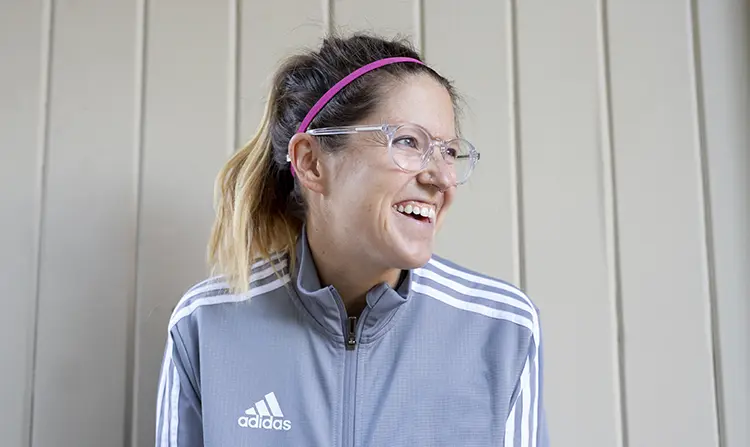
Hi everyone! I’m Jenn and I create content to help female soccer players and coaches maximize individual and team potential by developing healthy mindset skills. Join other subscribers and sign up for the newsletter for all my best tips and advice!
We respect your privacy. Unsubscribe anytime.


